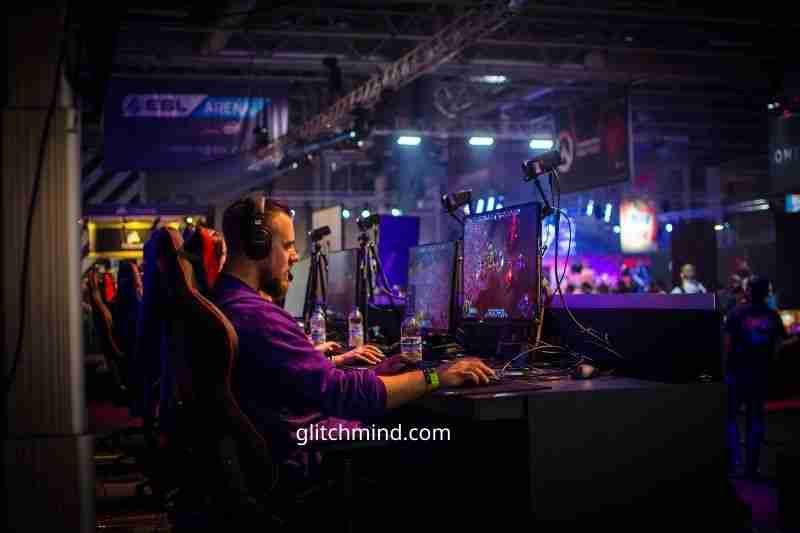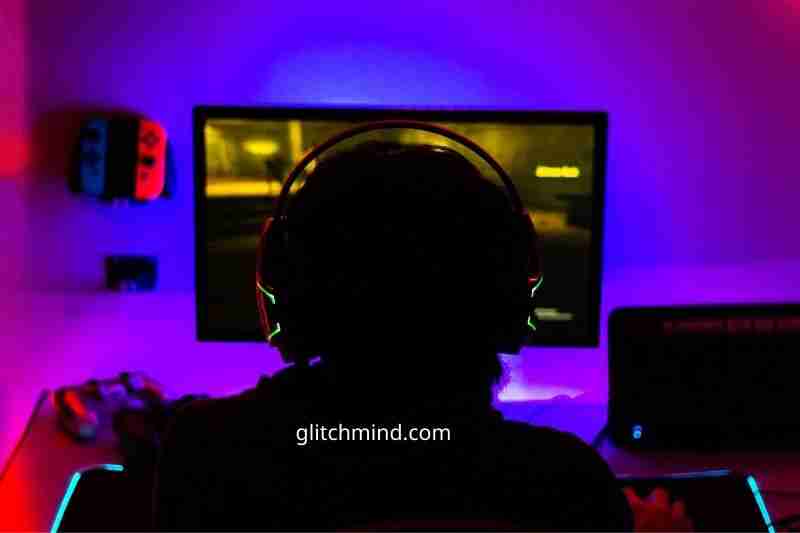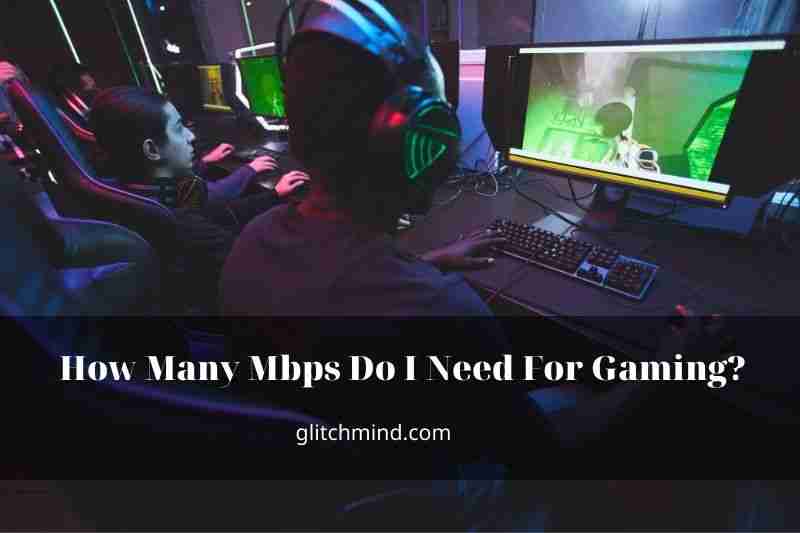When it comes to online gaming, one of the most important factors is your internet connection. If you’re looking to get the best gaming experience possible, you need to make sure you have a good internet connection with a high Mbps. But how do you know how many Mbps you need for gaming? Keep reading to find out.
Internet Vocabulary Fundamentals
Before we get into the specifics of the best internet speed for recreational and competitive gaming, let’s first define some key terminology. What is bandwidth, and how do upload and download speeds impact gaming? What exactly is lag? How about the ping rate and latency? What is rubber banding? Loss of packets? There are a lot of buzzwords out there, so let’s debunk them first.
1. Bandwidth
This part of your internet connection is straightforward: Bandwidth has a significant impact on how quick your Internet is for gaming and other chores. As explained, bandwidth is the maximum quantity of data that can be uploaded and downloaded at any one moment. It is usually measured in Mbps (megabits per second), which informs you how much data you can transport in one second. Another important distinction is that megabits are not the same as megabytes. One megabyte is eight megabits, implying that a one-megabyte-per-second transmission rate requires an 8 Mbps connection.
2. Speeds of Download and Upload
The ideal Internet speed for online gaming will vary according to the kind of game you play: Twitch shooters, for example, demand faster connection rates than casual games where split-second response times aren’t as important. Upload and download speeds play a role in this, and they are equally significant.
While a fast download connection aids in the faster loading of new maps and content, the upload speed ultimately determines how quickly the game detects your actions as a player. Download speeds govern how rapidly data from a server is sent to your system, and upload speeds control the reverse transfer direction.
3. Lag, Latency, and Ping
Lag is the time lag between activity on the server and the player’s PC. Low latency is essential for gaming since you want to prevent lag at all costs. Latency is essentially a measure of how fast your device transmits data to and gets a response from your game’s server. On the other hand, Ping accounts for the initial half of the journey.
Latency and game ping are both measured in milliseconds, and the lower either, the smoother your gaming experience. For example, if your ping is 20, it will take 20 milliseconds for your character to shoot in-game after pressing the fire button on your mouse or controller. In general, pings lower than 40 are excellent, pings around 100 are average, and pings beyond 200 cause considerable latency.
4. Rubber Banding and Packet Loss
A low latency internet connection is ideal for gaming and streaming. A bad internet connection might produce weird in-game behavior, which can harm both your experience and the experience of those who are playing with or against you. For example, if you’ve ever seen someone’s character seem to teleport across the map in a jerky way, you should be aware that this is due to rubber-banding, a bug caused by excessive latency.
The server connection is not fast or steady enough to update a player’s movements or activities in real-time. Therefore delays cause them to seem to be in and out of existence.
However, fast internet connections aren’t the only thing you need for gaming: Maintaining minimal network congestion is also critical; otherwise, packet losses may occur. This happens when data packets are lost before reaching a server. Packet loss is often expressed as a percentage, and failing more than 1 or 2 percent of your data might result in various issues, including rubber-banding.

How Many Mbps Do I Need For Gaming?
Your Internet connection speed has a significant impact on your online gaming experience. A fast Internet connection is essential whether you’re aiming for a Victory Royale in “Fortnite” or protecting your goal in “Rocket League.”
What Internet speed do I need for gaming, you may wonder? As a general “excellent internet speed,” most video game console makers suggest at least 3 Mbps (or “megabits per second,” the measurement of how much data can be transmitted in a second) of download speed and 0.5 Mbps to 1 Mbps of upload speed. Because we live in a highly connected society, many devices connected to your network will also affect your gaming experience.
Choosing a higher internet speed tier lets you send more data, giving you more leeway and reducing the likelihood that other network limits may interfere with your game. Glitchmind recommends speed tiers with 300 Mbps or above download rates for the best gaming experience.
The following is the minimal internet connection speed for gaming:
- The download speed is 3 Mbps.
- Upload bandwidth: 0.5-1 Mbps.
- Ping time: less than 150 milliseconds.
The following is the recommended internet connection speed for gaming:
- The download speed is 15-25 Mbps.
- Upload rate: 5 Mbps
- Ping time: less than 50 milliseconds.
1. Download and upload speeds
Online gaming, such as Halo Infinite and Fortnite, does not need much bandwidth. Unlike online videos delivered to your device through the Internet, the graphics processor in your computer, gaming console, or mobile device renders (draws) the virtual world locally and shows it on your screen. In truth, very little data is sent between the gaming server and the player. Both parties communicate the following information:
- Input through the keyboard
- Mouse input
- Controller input
- Location of the player (you and everyone else)
- The present situation of the globe
- Communication between players
- Notifications from servers (like in-game announcements)
Player location is one of the elements on the preceding list that might cause slowdowns, particularly in massively multiplayer online (MMO) games. These games may contain more real-world on-screen participants than a usual online gaming environment, resulting in frame rate reductions and “teleporting” gamers.
2. Upload speed is also significant
Because games are interactive, you must also consider how data from your computer or console is sent to a distant server. Even a weak connection may generally match the required speeds, so upload speed is sometimes overlooked in favor of other critical aspects.
A typical game with high-definition graphics requires an upload speed of at least 1–2 Mbps.
You may play games online as long as your internet connection passes these conditions. However, if you want a steady online experience, we recommend getting a somewhat better link.
3. Our speed recommendations for online gaming
Because the real speed requirements are so low, games and gaming systems often do not provide explicit recommendations. Instead, all they need is a “broadband internet connection.”
According to the Federal Communications Commission (FCC), a broadband connection has a download speed of 25 Mbps and an upload speed of 3 Mbps, which is more than enough for you to have several consoles online at the same time.
Whether you’re not sure if you have a broadband connection, you may do a speed test. Unfortunately, speed restrictions do not address the significant issue of latency while playing online games.

What kind of internet speed do I require? Quick hints
- Netflix recommends 5 Mbps for full HD material and 25 Mbps (megabits per second) for 4K Ultra HD content, but you’ll need even higher connections if you want to connect many devices at once. The same is true for other streaming platforms and game-streaming services such as Twitch.
- Multiple gadgets need greater bandwidth. If you want to stream 4K video material and have numerous devices connected to your network simultaneously, you should consider plans with greater download rates, such as 200 Mbps. Even the most data-hungry families should be able to utilize that speed.
- If available, consider gigabit (1,000 Mbps) speeds. Serious data consumers will want faster speeds and greater capacity. Gigabit-speed internet plans are the finest you can get for residential connections if they’re available.
- Understand your speeds. Check your internet connection speed using one of the finest speed-test apps to see whether you’re receiving the bandwidth you’re paying for.
- Examine your Wi-Fi connection. Sometimes, the issue is with your home network rather than your ISP. For some easy ideas, see our post on making Wi-Fi quicker.
What is it that makes Fiber Internet the fastest?
If you want to optimize your internet speed for online gaming, the first step is to understand which connections are the quickest.
Fiber is well recognized for its speed compared to satellite internet, coaxial cables, fiber-optic, and DSL (Digital Subscriber Line). Unlike its competitors, thread employs ultra-thin glass cables to harness the power of light and transport data instead of satellite connections, telephone lines, or copper cables.
While most internet speeds are measured in megabits per second (Mbps), fiber is often measured in gigabits per second. One gigabit per second (Gbps) equals 1,000 megabits per second (Mbps). The quicker your Internet, the greater your Mbps or Gbps.
Another advantage of fiber internet is that it often provides symmetrical capacity (upload and download speeds are equal). This implies that the pace at which you transmit and receive data is the same whether you’re gaming. Even the most negligible latency in one might lose you a victory. Therefore the more bandwidth you have, the better.
How can I increase the speed of my Internet?
You’re irritated if you’re continually missing your opponents in online games due to latency. There are, however, certain things you can do about it. First, verify your internet connection speed to ensure you have adequate Mbps.
Check out our post for a more in-depth look at how to speed up your Internet. In the interim, try these game-specific tips:
- Connect your PC or console to your network via an Ethernet cable.
- If you stream, save playthroughs and post them later. If you live stream, you’ll almost certainly want more Mbps.
- Disconnect any other gadgets that are using your bandwidth.
- Request that your roommates refrain from streaming music or video while you play.
- Download new games and major upgrades at night to avoid having to wait.
- Reset your router as well as your gaming devices.
If your internet package isn’t adequate for the task, you’ll need to upgrade or move providers. We’ll show you the available plans in your region if you enter your zip code below.
FAQs
1. Is 300 Mbps sufficient for gaming?
Without a doubt. Depending on the kind of game you perform, it may even be overkill if you are the only one utilizing the connection in the home. Connecting to distant game servers on the other side of the world will result in severe ping and latency on any connection. Still, 300 Mbps should be more than adequate for a reliable and quick experience for playing on servers local to your location.
2. Is 30 Mbps sufficient for working from home?
In most cases, yes. However, it is dependent on the nature of your job. It will suffice for bandwidth-intensive operations such as 4K video streaming, but you may want to consider upgrading. Even slower, you’ll be OK for primarily text-based chores like SEO content authoring. A good gaming internet connection, on the other hand, must be substantially faster than the speed required to operate video conferencing programs without hiccups.
3. How many megabits per second is a gigabyte?
This is a widespread misunderstanding: gigaBYTES (GB) and gigaBITS per second (Gbps) are not interchangeable. The former relates to storage space, while the latter to internet speed. However, the essential notion of MB/GB conversion remains true for Mbps and Gbps. To put it another way, one gigabyte equals 1,000 megabytes, and one gigabit per second = 1,000 megabits per second.
4. How many devices can a 25 Mbps connection support?
Typically, one to two hours, depending on what you want to accomplish online. If you’re asking, “How many megabits per second do I need for gaming?” The answer will very certainly exceed 25 Mbps. Streaming 4K films or playing games from remote servers, on the other hand, will be much more demanding on your internet connection than firing up a few Facebook games. Still, it’s never a brilliant idea to share your internet connection with too many gadgets.
5. What internet service provider do professional gamers use?
Fiber-optics. It has reduced latency for gaming than cable, DSL, or satellite internet and does not slow down during busy hours. However, it is not as widely accessible as the other options and maybe rather costly.
6. Does my data limit have an impact on my gaming?
Data limitations are quite frequent in internet plans. When you exceed your data quota, you may have to pay extra for your Internet or contend with throttled speeds.
It’s vital to remember that downloading and upgrading games consumes a large amount of data. PS5 updates may be as large as 500 MB. Downloading games, upgrading games, and playing multiplayer games influence your data use.
When you approach your data limits, your ISP should notify you by text message or email so you don’t go over without realizing it. If you regularly exceeding your monthly data limit, it may be time to switch to a better data plan or a different ISP.
7. What is a decent PS4/PS5 connection speed?
The following are the minimal requirements:
- The download speed is 3 Mbps.
- Upload rate: 1 Mbps
- Ping time: less than 150 milliseconds.
- Because Playstation does not specify minimum internet speed requirements, these figures are only suggestions.
The following are the recommended specifications:
- The download speed is 16 Mbps.
- The upload speed is 4 Mbps.
- Ping time: less than 50 milliseconds.
- The PlayStation support website only lists the recommended download and upload speeds. The ideal ping rate is based on industry standards.
8. What is a decent Xbox One connection speed?
According to Xbox’s support website, the following are the minimal requirements:
- The download speed is 3 Mbps.
- Upload rate: 0.5 Mbps
- Ping time: less than 150 milliseconds.
The following are the recommended specifications:
- The download speed is 15-25 Mbps.
- The upload speed is 4 Mbps.
- Ping time: less than 50 milliseconds.
- Because Xbox does not propose an internet speed for gaming, these figures are based on broad standards.
9. What is a decent Nintendo Switch connection speed?
The following are the minimal requirements:
- The download speed is 3 Mbps.
- Upload rate: 1 Mbps
- Ping time: less than 150 milliseconds.
- Only the minimum download and upload speeds are provided on Nintendo’s support website. The minimum ping rate is determined by following standard criteria.
The following are the recommended specifications:
- The download speed is 15-25 Mbps.
- The upload speed is 4 Mbps.
- Ping time: less than 50 milliseconds.
- Nintendo does not suggest any internet speed requirements. These figures are based on broad criteria.
10. What is a decent internet connection speed for a PC or a Mac?
The following are the minimal requirements:
- 3-6 Mbps download speed
- Upload bandwidth: 0.75-1 Mbps.
- Ping time: 100-150 milliseconds.
The following are the recommended specifications:
- The download speed is 15-25 Mbps.
- Upload rate: 5 Mbps
- Ping time: less than 50 milliseconds.
- These figures are based on broad criteria. Your experience will differ based on the computer you’re using and the game you’re playing.
Conclusion
Finally, choosing the internet speeds you need isn’t as straightforward as it seems — or as simple as ISPs would have you think.
According to the experts, you should consider the number of devices that will connect to your network simultaneously, as well as what you want to accomplish with your connection.
If all you want to do is stream and browse the web, you won’t need much. However, if you’re going to stream 4K video, play online games, and connect numerous devices, you’ll need more bandwidth, which will cost you more money.
What you pay for is not always what you receive. It would help to examine your network speeds regularly to understand what happens during slowdowns or connection outages and everyday use. If you’re not getting the rates you paid for, it’s time to contact your internet service provider.
Read also:

